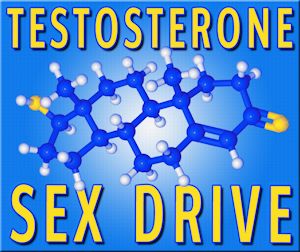Introduction
Testosterone undecanoate, a long-acting injectable form of testosterone, has been increasingly utilized in the management of hypogonadism among American males. While its physiological benefits are well-documented, the psychiatric community has begun to explore its impact on mental health. This article delves into the psychiatric evaluation of testosterone undecanoate's effects on mood, cognitive function, and overall mental well-being in American males.
The Role of Testosterone in Mental Health
Testosterone is not only crucial for physical development and sexual function but also plays a significant role in mental health. Studies have shown that testosterone levels are associated with mood regulation, cognitive performance, and emotional stability. Hypogonadism, characterized by low testosterone levels, has been linked to increased rates of depression, anxiety, and cognitive impairment.
Impact on Mood and Depression
Research indicates that testosterone undecanoate can have a positive effect on mood in men with hypogonadism. A study published in the *Journal of Clinical Endocrinology & Metabolism* found that testosterone replacement therapy, including testosterone undecanoate, significantly improved depressive symptoms in hypogonadal men. The improvement in mood is thought to be related to testosterone's influence on neurotransmitter systems, particularly serotonin and dopamine, which are critical for mood regulation.
Cognitive Function and Testosterone
Cognitive function is another area where testosterone undecanoate may exert beneficial effects. Hypogonadal men often report difficulties with memory, attention, and executive function. A meta-analysis in the *Journal of Clinical Psychiatry* demonstrated that testosterone therapy could enhance cognitive performance, particularly in verbal memory and spatial abilities. These findings suggest that testosterone undecanoate may help mitigate cognitive decline associated with low testosterone levels.
Anxiety and Emotional Stability
Anxiety is a prevalent mental health issue among American males, and testosterone levels may play a role in its manifestation. Some studies have suggested that testosterone undecanoate can reduce anxiety symptoms in men with hypogonadism. The mechanism behind this effect may involve testosterone's influence on the amygdala, a brain region involved in fear and anxiety responses. By modulating the activity of this region, testosterone undecanoate may contribute to greater emotional stability.
Potential Risks and Considerations
While testosterone undecanoate offers potential mental health benefits, it is not without risks. Psychiatric evaluations have noted that some men may experience mood swings or irritability during the initial stages of therapy. Additionally, there is a concern that testosterone therapy could exacerbate underlying psychiatric conditions in susceptible individuals. Therefore, careful monitoring and individualized treatment plans are essential to maximize benefits while minimizing risks.
Clinical Implications and Future Research
The psychiatric evaluation of testosterone undecanoate's impact on mental health underscores the need for a holistic approach to testosterone therapy. Clinicians should consider both the physiological and psychological aspects of treatment when prescribing testosterone undecanoate. Future research should focus on long-term studies to better understand the sustained effects of testosterone therapy on mental health and to identify predictors of treatment response.
Conclusion
Testosterone undecanoate holds promise as a therapeutic option for improving mental health in American males with hypogonadism. Its potential to alleviate symptoms of depression, enhance cognitive function, and reduce anxiety highlights the importance of considering testosterone levels in the psychiatric evaluation of male patients. As research continues to evolve, the psychiatric community must remain vigilant in balancing the benefits and risks of testosterone therapy to optimize patient outcomes.
Contact Us Today For A Free Consultation

- Testosterone Undecanoate: Enhancing Athletic Performance in American Males - Benefits and Risks [Last Updated On: March 5th, 2025] [Originally Added On: March 5th, 2025]
- Testosterone Undecanoate: Long-Acting Treatment for Hypogonadism in American Men [Last Updated On: March 16th, 2025] [Originally Added On: March 16th, 2025]
- Maximizing Testosterone Undecanoate Benefits: Diet, Exercise, and Lifestyle for American Men [Last Updated On: March 17th, 2025] [Originally Added On: March 17th, 2025]
- Testosterone Undecanoate: A Long-Acting TRT Option for American Males with Hypogonadism [Last Updated On: March 17th, 2025] [Originally Added On: March 17th, 2025]
- Testosterone Undecanoate: Enhancing Life Quality for American Males with Low Testosterone [Last Updated On: March 18th, 2025] [Originally Added On: March 18th, 2025]
- Testosterone Undecanoate: A Breakthrough in Treating Andropause for American Men [Last Updated On: March 19th, 2025] [Originally Added On: March 19th, 2025]
- Testosterone Undecanoate Therapy: Importance of Regular Monitoring for American Men [Last Updated On: March 20th, 2025] [Originally Added On: March 20th, 2025]
- Safety Profile of Testosterone Undecanoate in American Males: Monitoring and Management [Last Updated On: March 21st, 2025] [Originally Added On: March 21st, 2025]
- Testosterone Undecanoate: Managing Deficiency in Diverse American Male Demographics [Last Updated On: March 21st, 2025] [Originally Added On: March 21st, 2025]
- Testosterone Undecanoate Therapy Enhances Sleep Quality in American Men with Hypogonadism [Last Updated On: March 21st, 2025] [Originally Added On: March 21st, 2025]
- Testosterone Undecanoate's Impact on Hair Growth in American Males: Insights and Management [Last Updated On: March 22nd, 2025] [Originally Added On: March 22nd, 2025]
- Testosterone Undecanoate: A Solution for Muscle Loss in Aging American Males [Last Updated On: March 22nd, 2025] [Originally Added On: March 22nd, 2025]
- Exploring Testosterone Undecanoate's Role in Managing Chronic Fatigue in Men [Last Updated On: March 22nd, 2025] [Originally Added On: March 22nd, 2025]
- Testosterone Undecanoate: Enhancing Fertility in American Men [Last Updated On: March 22nd, 2025] [Originally Added On: March 22nd, 2025]
- Testosterone Undecanoate: Cultural Perceptions and Healthcare Navigation in American Men [Last Updated On: March 22nd, 2025] [Originally Added On: March 22nd, 2025]
- Testosterone Undecanoate's Impact on Cognitive Function in American Men: A Review [Last Updated On: March 22nd, 2025] [Originally Added On: March 22nd, 2025]
- Testosterone Undecanoate: A Promising Solution for Weight Management in American Men [Last Updated On: March 23rd, 2025] [Originally Added On: March 23rd, 2025]
- Testosterone Undecanoate: Enhancing Emotional Well-being in American Males [Last Updated On: March 23rd, 2025] [Originally Added On: March 23rd, 2025]
- Testosterone Undecanoate: A Promising Therapy for Hypogonadism in American Male Cancer Survivors [Last Updated On: March 23rd, 2025] [Originally Added On: March 23rd, 2025]
- Testosterone Undecanoate: Enhancing Injury Recovery in American Males [Last Updated On: March 23rd, 2025] [Originally Added On: March 23rd, 2025]
- Testosterone Undecanoate: Enhancing Metabolic Health in American Men [Last Updated On: March 23rd, 2025] [Originally Added On: March 23rd, 2025]
- Testosterone Undecanoate: Effects on Blood Pressure in American Men with Hypogonadism [Last Updated On: March 23rd, 2025] [Originally Added On: March 23rd, 2025]
- Testosterone Undecanoate: A Vital Therapy for American Male Veterans' Health [Last Updated On: March 24th, 2025] [Originally Added On: March 24th, 2025]
- Testosterone Undecanoate: Efficacy and Safety in American Men - A Clinical Overview [Last Updated On: March 24th, 2025] [Originally Added On: March 24th, 2025]
- Testosterone Undecanoate: Managing Side Effects for American Men's Health [Last Updated On: March 24th, 2025] [Originally Added On: March 24th, 2025]
- Testosterone Undecanoate's Impact on Eye Health in American Men: Benefits and Risks [Last Updated On: March 24th, 2025] [Originally Added On: March 24th, 2025]
- Testosterone Undecanoate: A Promising Treatment for Sexual Dysfunction in American Men [Last Updated On: March 24th, 2025] [Originally Added On: March 24th, 2025]
- Testosterone Undecanoate's Impact on Immune Function in American Males: Benefits and Risks [Last Updated On: March 24th, 2025] [Originally Added On: March 24th, 2025]
- Testosterone Undecanoate: A Promising Treatment for Osteoporosis in American Men [Last Updated On: March 24th, 2025] [Originally Added On: March 24th, 2025]
- Testosterone Undecanoate's Impact on Respiratory Health in American Men: Benefits and Risks [Last Updated On: March 24th, 2025] [Originally Added On: March 24th, 2025]
- Testosterone Undecanoate: Enhancing Endurance in American Men [Last Updated On: March 24th, 2025] [Originally Added On: March 24th, 2025]
- Testosterone Undecanoate: Enhancing Skin Health in American Men [Last Updated On: March 25th, 2025] [Originally Added On: March 25th, 2025]
- Testosterone Undecanoate: Impacts on American Male Longevity and Health [Last Updated On: March 25th, 2025] [Originally Added On: March 25th, 2025]
- Testosterone Undecanoate's Impact on Dental Health in American Males: A Comprehensive Review [Last Updated On: March 25th, 2025] [Originally Added On: March 25th, 2025]
- Testosterone Undecanoate: Dispelling Myths and Understanding Benefits for Hypogonadism Treatment [Last Updated On: March 26th, 2025] [Originally Added On: March 26th, 2025]
- Testosterone Undecanoate's Impact on Digestive Health in American Males: Benefits and Risks [Last Updated On: March 26th, 2025] [Originally Added On: March 26th, 2025]
- Testosterone Undecanoate: Economic Impact and Healthcare Benefits for American Men [Last Updated On: March 26th, 2025] [Originally Added On: March 26th, 2025]
- Testosterone Undecanoate: A Promising Stress Management Tool for American Males [Last Updated On: March 26th, 2025] [Originally Added On: March 26th, 2025]
- Testosterone Undecanoate's Impact on Joint Health in American Males: Benefits and Risks [Last Updated On: March 26th, 2025] [Originally Added On: March 26th, 2025]
- Testosterone Undecanoate's Impact on Kidney Function in American Men: A Comprehensive Review [Last Updated On: March 26th, 2025] [Originally Added On: March 26th, 2025]
- Testosterone Undecanoate Enhances Skin Elasticity in American Men with Hypogonadism [Last Updated On: March 26th, 2025] [Originally Added On: March 26th, 2025]
- Testosterone Undecanoate's Impact on Liver Health in American Men: A Comprehensive Review [Last Updated On: March 27th, 2025] [Originally Added On: March 27th, 2025]
- Testosterone Undecanoate: Dosage Adjustments and Monitoring for American Men [Last Updated On: March 27th, 2025] [Originally Added On: March 27th, 2025]
- Testosterone Undecanoate: Enhancing Diabetes Management in American Males [Last Updated On: March 27th, 2025] [Originally Added On: March 27th, 2025]
- Testosterone Undecanoate: Optimizing Hypogonadism Treatment for American Men [Last Updated On: March 27th, 2025] [Originally Added On: March 27th, 2025]
- Testosterone Undecanoate's Impact on Cholesterol Levels in American Men: A Comprehensive Review [Last Updated On: March 27th, 2025] [Originally Added On: March 27th, 2025]
- Testosterone Undecanoate: Enhancing Cognitive Function in American Men [Last Updated On: March 28th, 2025] [Originally Added On: March 28th, 2025]
- Testosterone Undecanoate's Impact on Nail Health in American Males: Benefits and Risks [Last Updated On: March 28th, 2025] [Originally Added On: March 28th, 2025]
- Testosterone Undecanoate: A Novel Approach to Managing Allergies in American Males [Last Updated On: March 29th, 2025] [Originally Added On: March 29th, 2025]
- Testosterone Undecanoate: A Promising Therapy for Chronic Pain in American Males [Last Updated On: March 30th, 2025] [Originally Added On: March 30th, 2025]
- Testosterone Undecanoate's Impact on Hearing in American Males: A Comprehensive Review [Last Updated On: March 30th, 2025] [Originally Added On: March 30th, 2025]
- Testosterone Undecanoate: Benefits and Considerations for American Men's Reproductive Health [Last Updated On: April 1st, 2025] [Originally Added On: April 1st, 2025]
- Testosterone Undecanoate: Enhancing Muscle, Reducing Fat in American Males [Last Updated On: April 1st, 2025] [Originally Added On: April 1st, 2025]
- Testosterone Undecanoate and Hair Loss: Insights for American Men on TRT [Last Updated On: April 2nd, 2025] [Originally Added On: April 2nd, 2025]
- Testosterone Undecanoate: Enhancing Immune Response in American Men [Last Updated On: April 4th, 2025] [Originally Added On: April 4th, 2025]
- Monitoring Testosterone Undecanoate Treatment: Key Parameters and Guidelines for American Men [Last Updated On: April 4th, 2025] [Originally Added On: April 4th, 2025]
- Testosterone Undecanoate's Impact on Blood Clotting in American Males: Risks and Management [Last Updated On: April 5th, 2025] [Originally Added On: April 5th, 2025]
- Testosterone Undecanoate: A Promising Treatment for Anxiety in American Males [Last Updated On: April 6th, 2025] [Originally Added On: April 6th, 2025]
- Testosterone Undecanoate: Enhancing Muscle Recovery and Performance in American Men [Last Updated On: April 7th, 2025] [Originally Added On: April 7th, 2025]
- Testosterone Undecanoate's Impact on Heart Rate in American Men: Safety and Efficacy [Last Updated On: April 8th, 2025] [Originally Added On: April 8th, 2025]
- Testosterone Undecanoate's Impact on Blood Sugar in American Males: Benefits and Risks [Last Updated On: April 9th, 2025] [Originally Added On: April 9th, 2025]
- Testosterone Undecanoate: A Promising Treatment for Depression in American Males [Last Updated On: April 9th, 2025] [Originally Added On: April 9th, 2025]
- Testosterone Undecanoate's Impact on Skin Pigmentation in American Males: Mechanisms and Clinical Insights [Last Updated On: April 9th, 2025] [Originally Added On: April 9th, 2025]
- Managing Side Effects of Testosterone Undecanoate Therapy in American Men [Last Updated On: April 10th, 2025] [Originally Added On: April 10th, 2025]
- Testosterone Undecanoate: Enhancing Muscle Strength in American Men [Last Updated On: April 10th, 2025] [Originally Added On: April 10th, 2025]
- Testosterone Undecanoate: Enhancing Male Sexual Health in American Men [Last Updated On: April 11th, 2025] [Originally Added On: April 11th, 2025]
- Testosterone Undecanoate: Enhancing Bone Healing in American Men [Last Updated On: April 13th, 2025] [Originally Added On: April 13th, 2025]
- Testosterone Undecanoate Enhances Wound Healing in American Men: Clinical Insights and Implications [Last Updated On: April 14th, 2025] [Originally Added On: April 14th, 2025]
- Testosterone Undecanoate's Impact on Appetite in American Males: A Comprehensive Analysis [Last Updated On: April 15th, 2025] [Originally Added On: April 15th, 2025]
- Testosterone Undecanoate's Impact on Thermoregulation in American Males: Benefits and Research Needs [Last Updated On: April 15th, 2025] [Originally Added On: April 15th, 2025]
- Testosterone Undecanoate's Impact on Sleep Quality in American Men: A Comprehensive Review [Last Updated On: April 15th, 2025] [Originally Added On: April 15th, 2025]
- Testosterone Undecanoate's Impact on Skin Sensitivity in American Males: A Comprehensive Review [Last Updated On: April 15th, 2025] [Originally Added On: April 15th, 2025]
- Testosterone Undecanoate Therapy: Lifestyle Adjustments for American Men [Last Updated On: April 16th, 2025] [Originally Added On: April 16th, 2025]
- Testosterone Undecanoate Enhances Skin Hydration in American Males: A Comprehensive Study [Last Updated On: April 17th, 2025] [Originally Added On: April 17th, 2025]
- Testosterone Undecanoate: Enhancing Aesthetics in American Men Through Muscle and Fat Optimization [Last Updated On: April 17th, 2025] [Originally Added On: April 17th, 2025]
- Testosterone Undecanoate: A Promising Treatment for Migraines in American Males [Last Updated On: April 17th, 2025] [Originally Added On: April 17th, 2025]
- Testosterone Undecanoate's Impact on Vascular Health in American Men: A Comprehensive Review [Last Updated On: April 18th, 2025] [Originally Added On: April 18th, 2025]
- Testosterone Undecanoate's Impact on Blood Viscosity in American Men: Risks and Management [Last Updated On: April 19th, 2025] [Originally Added On: April 19th, 2025]
- Testosterone Undecanoate: Effective Long-Acting Treatment for Hypogonadism in American Men [Last Updated On: April 21st, 2025] [Originally Added On: April 21st, 2025]
- Testosterone Undecanoate: Benefits, Risks, and Management for Long-Term Use in American Men [Last Updated On: April 21st, 2025] [Originally Added On: April 21st, 2025]
Word Count: 536




















